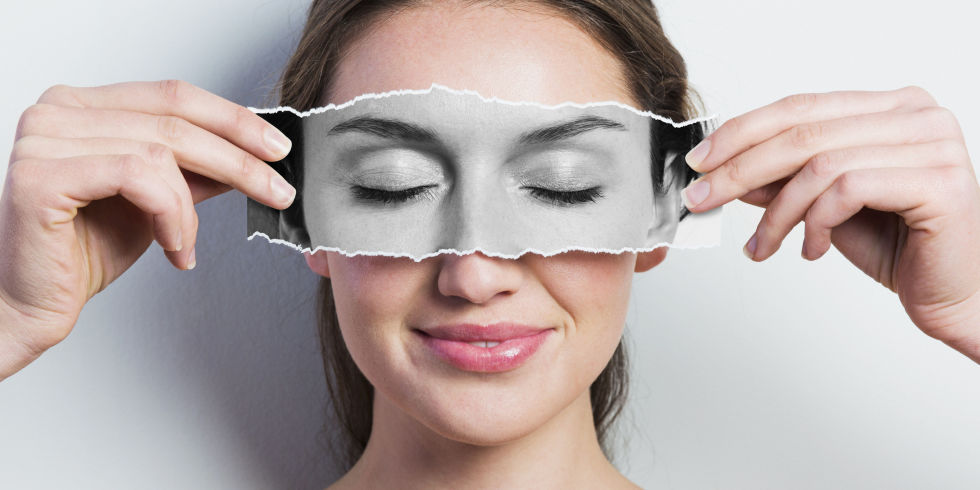Posted by: Caster Eye Center in eye health

The eyes are the windows to our souls. But over time, the windows to our soul can become cloudy. Just like our physique, our eyes also exhibit age-related decline. Age-related decline such as presbyopia, the inability to adjust our focus from far to near, is normal as we age. But it does not mean that all declines are age-related.
Age-Related Vision Changes
Our vision tends to change over time. Age-related vision changes affect the quality of life. Below are some of the symptoms for middle-age related vision issues.
• Difficulty reading or doing work up close: Most people over 45 years old find it difficult to read printed materials up close. The reason for this is that the lenses in the eyes become less flexible, making it harder for people to focus on objects that are near. This is called presbyopia.
• Need for more light: Once we age, our eyes tend to require more light to see. The changes occurring in our lenses can cause the light to scatter in our eyes instead of being more focused on the retina, which can cause a greater amount of glare.
• Less tears: Our tear glands produce fewer tears as we get older. This is true especially among women who are undergoing hormonal changes due to menopause. This makes the eye feel more irritated and dry.
• Changes in how colors are perceived: Over time, the lens inside our eyes discolors, thus it making it harder for us to perceive certain colors.
When Does Eye-Aging Occur?
Aging eyes tend to exhibit symptoms by the time we reach 45 years old. At this age, most people suffer from age-related farsightedness (presbyopia) wherein people find it difficult to focus on objects close to them. This occurs because the lens inside the eyes has hardened. People with presbyopia need to hold reading materials far from them in order to clearly read. Presbyopia can be corrected with prescription glasses. LASIK surgery can also be used to correct presbyopia.
As you reach your 50’s, the presbyopia will progress. The lenses of your eyes will continue to become less flexible and you will need stronger reading glasses.
As we reach the age of 60 and above, other eye problems become more common. These include cataracts, glaucoma, and macular degeneration. These eye problems are caused by different factors such as the lenses becoming opaque, increasing pressure in the eye, and deterioration of the retina.
How Does Aging Affect the Eye Structures?
It is important to take note that aging does not only affect the lens of the eyes but it also affects the other structures within and around it. Below are the changes in your eyes that you are likely to experience once you get older.
• Dry eyes: As discussed previously, the eyes tend to produce fewer tears as you get older. This starts during the the pre-menopausal years in women. Dry eyes may cause an experience of stinging or burning sensation in your eyes. Omega-3 fish oil pills are very helpful in alleviating these symptoms.
• Smaller pupil size: The muscle that controls the size of your pupil loses strength over time. The slower reaction time of the pupil increases the sensitivity of the eyes towards glare. This is especially true as you move from a dark to an extremely bright area.
• Loss of peripheral vision: Peripheral vision is your side vision. As you get older, your visual field decreases by three degrees for each decade of your life. So, by the time you reach 70 years old, you will have lost 20% to 30% of your peripheral vision. This increases the risk of vehicular accidents among older people.
• Vitreous detachment: The vitreous humor is a jelly-like substance in the eyes. It keeps the retina in place. As you get older, it starts to liquefy and maybe pulling away from the retina. This causes one to see floaters, spots, and flashes of light. This condition is called vitreous detachment and is harmless. However, this can also result in the detachment of the retina that can lead to blindness especially when not treated immediately.
For Those with Poor Vision
LASIK surgery is a painless and quick procedure performed here at Caster Eye Center that will correct your vision, typically to 20/20 or above. After LASIK it’s still important to keep your eyes healthy to retain vision. Healthy living as well as regular eye doctor visits will help ensure that.
For more information on the LASIK procedure as well maintaining your vision and eye health contact us today!
